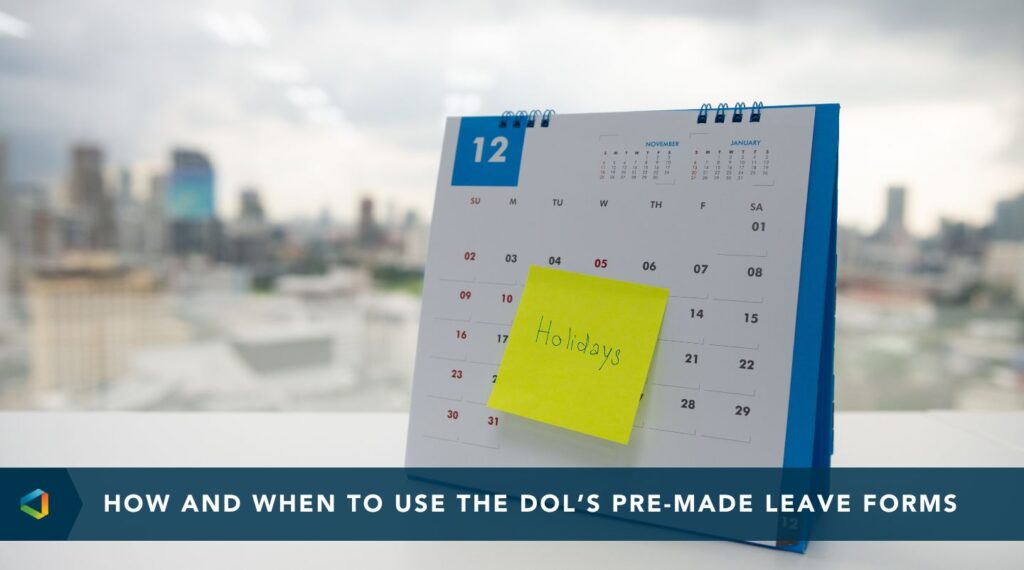Compliance Confidence, No Headaches
Employer Advisory: Coronavirus Response and Relief Act Update
Employer Advisory: Coronavirus Response and Relief Act Update
On December 27, 2020 the President signed the $900 billion Coronavirus Response and Relief Supplemental Applications Act, 2021, which will provide assistance to individuals and businesses as part of a $1.4 trillion omnibus spending agreement. More information about this agreement can be found here.
Below is a summary of employer related changes with the Bill:
Families First Coronavirus Response Act (FFCRA) Extension:
Includes an extension of the tax credits for FFCRA until March 31, 2021. As per the bill, employers are no longer required to provide FFCRA leave after December 31, 2020, but if an employer decides to continue to provide paid leave under terms of the FFCRA, the employer may continue to take the available tax credits through March 31, 2021. It is noted that employees are only entitled to any FFCRA leave they had remaining as of December 31, 2020, additional leave is not granted, nor will leave beyond the 2020 FFCRA allocation be considered for tax credit. Click here for more information regarding the FFCRA Extension and employer considerations.
Payroll Protection Program (PPP) Expansion:
$284 billion is allocated towards the PPP in forgivable, federally backed loans aimed for small businesses. The Bill allows new PPP loan applications to be submitted by eligible applicants, permits some businesses to obtain a second PPP loan, and changes PPP rules in the areas of eligibility, allowable expenses, forgiveness and more. The relief package also provides $20 billion in Economic Injury Disaster Loans for smaller businesses.
The Bill provides the Small Business Administration (SBA) 10 days to implement the new rules, so more specific rules could be coming. Borrowers should turn to their lenders for guidance.
Health and Dependent Care Flexible Spending Accounts (FSAs):
The relief package allows employers to make several optional plan amendments to prevent members from losing unused FSA and/or Dependent Care Account (DCA) contributions for plans ending in 2020 and 2021, permitting unused balances at the end of plans to rollover into the following new plan year. In addition, grace periods for these plans can be extended 12 months after the end of each new plan year in 2020 and 2021.
Employers can also raise a child’s eligible age for DCAs from 12 to 13 for the 2020 plan year, and are permitted to allow employees to make a 2021 mid-year prospective change in contribution amounts without a qualifying event. Further, employers can allow employees with FSAs and DCAs who terminate in 2020 or 2021 to use their remaining balances through the end of the plan year.
Employer-Provided Student Loan Repayment Extension:
The Bill extends allowable employer student loan contributions through December 31, 2025. Under this provision, employers may contribute up to $5,250 annually toward an employee's student loans, and such payment would be excluded from the employee's income. The $5,250 cap applies to both the new student loan repayment benefit as well as other educational assistance (e.g., tuition, fees and books) provided by the employer under current law.
The relief package included other workplace provisions as well, including:
- An extension of employer credits for Paid Family and Medical Leave through December 31, 2025
- An extension of the Work Opportunity Tax Credit through December 31, 2025
- An extension of expanded unemployment insurance
- An extension of the employee retention tax credit
- Provisions to end the practice of surprise medical billing
- Deferred payroll taxes
- A deduction for business meals




